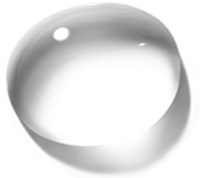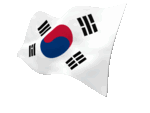Although the River Is Dirty
페이지 정보
본문

The recent uproar over the undrinkable drinking water supplied by the Waterworks Bureau in some cities around the Naktong River area is not and can not be a storm in a teacup. We had experienced and witnessed the similar incidents reported, raised, and talked about before, but we have been drinking, nonetheless, the water, with some qualms though, hope against hope, and hoping for the best. But, to our shock and horror, it is officially acknowledged that we have been drinking some toxic chemicals that could eventually cause cancer, the most feared disease known to us. The fear mixed with anger this time is not, as it was before, over some bad smell or the suspicious color of the water.
The seriousness of the problem doubles when we realize that it is not due to the temporary technical failure of the processing machines, nor to the negligence of the men in charge, but is due to the polluted river itself that supplies water to be chemically processed. In other words, the Naktong River is so badly polluted by the waste water from so many factories along the upper river that it cannot recover itself, and the dirty water is almost past recovery by any means. In a word, the river itself is dead.
The gravity of the situation triples when we come to realize that it is not the Naktong River alone that is at stake. Nearly all the rivers in our country, with only some variance of degree, are dead already or dying slowly of the too much wastes and the insoluble chemicals produced by the factories and homes. It is only a matter of time for us all to drink undrinkable water, if some radical and drastic measures are not taken to protect our rivers. The river, the flowing body of water, great subject for the poets from the ancient time, embodiment of childhood innocence and happy memories, eternal symbol of beauty, peace and life, has turned, all of a sudden, into a sorry object of pity, worry, and sadness; a suspicious entity to keep our eyes on, a great nuisance and burden to take care of.
Just 50 years ago or so we lived virtually in the Edenic beauty and purity of nature. The rivers and streams were crystal clean and clear, and we could drink directly of the water from them without much worrying about its consequences. And the sweet taste of it! We could see through the water to the golden sands at the bottom on which a swarm of minnows swam freely throwing their shadows on it. The rivers provided almost everything we needed for our life: play, work, foods, transportation, and rest. But this romance with the river is over. The ugly black cake of dirt has set in like a death-bed at the bottom of the river killing all life on it.
Laments are heard everywhere. What happened to our rivers and streams? What happened to the blue and deep sky? And to the bright and big stars? To the fresh air in the morning? To the rainbows? To the songs of the birds?
It is sad to see this purity and beauty of nature disappear from our sight and sense, but it is sadder to be poor and hungry. Although the water of the rivers and streams is not what it used to be, we should not forget the material as well as the spiritual wealth we are enjoying at the cost of its destruction. When the rivers were clear and clean, we were very poor. When the sky was deep and blue, we were very hungry. When the stars were as big as your clenched fist and so near as to be grasped, we had to shiver in the cold in winter for lack of clothes and fuel. Although we drank clean water and breathed in pure air, and ate all the good natural foods free from pollution, the infant mortality rate was much higher then, and the life expectancy was much shorter than now. It is not the polluted rivers alone that threaten our life.
The uncomfortable news that we came to drink undrinkable drinking water should not discourage some eternal pessimists in our country to commit suicide. It simply means we have become rich, far better off, wealthy and prosperous. It means we eat well, wear well, and live well; warm in winter and cool in summer in the apartment houses, driving his or her own car, going abroad freely, consuming and spending more, throwing away even the usable things with no pangs of conscience, manufacturing and spending more than we need, and consequently huge amount of garbage and waste insoluble and indecomposable is being produced. If we just shut down all the factories and plants, stop driving cars, and begin to burn firewood instead of oil as of today, we will surely be able to have our rivers and streams back in their pristine condition in less than a month.
The real problem is, however strong and real our nostalgia for the clean river and for the sweet the taste of water might be, we can not go back to the time when there was no words, such as 'pollution,' 'environment' or 'environmental crisis.' And no one wants to. Paradoxically speaking, we have to welcome and celebrate the fact that we came to have, at last, as some advanced countries in the world had had far ahead of us, the means and methods of polluting the rivers. There are still some people somewhere on the face of the earth who live in and with nature without any means or methods of polluting it, as Adam and Eve lived in the Paradise. We call them 'natives' or 'primitives', and look down upon them as some inferior kind of man, or some special species of man to be preserved, studied, and protected. We would or could be in the same fate in the eyes of the Americans or the Japanese, if we had kept the virginity of our nature until now.
We all knew we were killing the rivers. We were well aware of the coming disaster. There were enough warnings from the people concerned about the imminent dangers. There is nothing new about the news that Naktong River has been hopelessly contaminated. We knew, but we were busier in making more money, and in accumulating some fortune. The stench and the unbelievable color of the drinking water at the faucets in the apartment houses around the Naktong River this time are a sure and clear signal that it is time we started to spend more of the money we have made on the river we have destroyed. And if we know how to destroy, we should also know how to build.
(February 7, 1994)
- 이전글On Going Abroad by Airplane 21.01.13
- 다음글From A Runner To A Walker 21.01.13
댓글목록
등록된 댓글이 없습니다.








